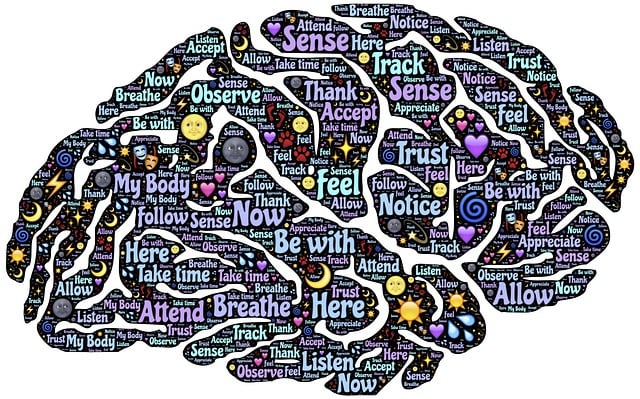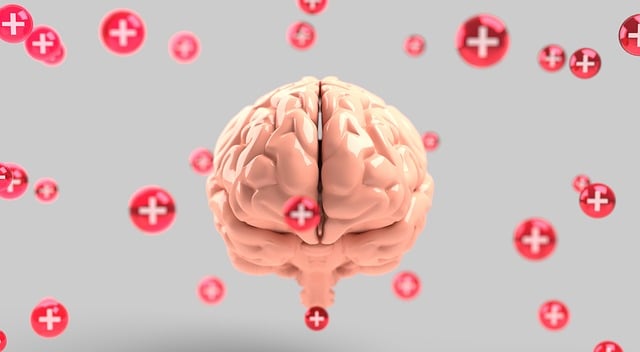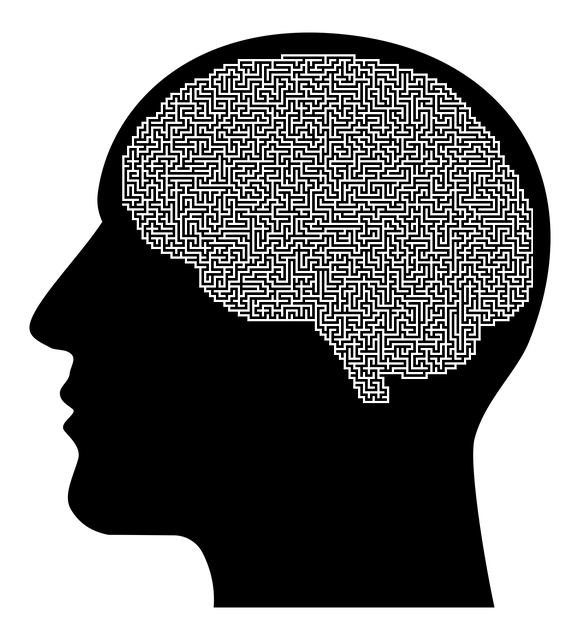Comprehensive mental health education, including Therapy for Suicide Prevention, is vital to address urgent needs related to mental wellness. This involves integrating practical tools for stress management, dispel myths, and reduce stigma. Key strategies include crisis simulation training, cultural competency, and mood management techniques like cognitive-behavioral therapy (CBT). Evidence-based practices, such as CBT and stress workshops, empower individuals to navigate mental health challenges effectively, reducing suicide risk. Evaluating program impact using qualitative and quantitative methods ensures continuous improvement, while community outreach integration enhances tailored interventions and support networks for improved outcomes, focusing on Therapy for Suicide Prevention.
Mental health education programs play a pivotal role in fostering well-being and preventing suicide. This article explores the comprehensive design of such programs, focusing on key components essential for effectiveness. We delve into understanding mental health and suicide prevention, evidence-based strategies for training, and methods to evaluate success. By combining educational initiatives with therapy for suicide prevention, we can create a supportive environment, equip individuals with knowledge, and ultimately save lives.
- Understanding Mental Health and Suicide Prevention: The Need for Comprehensive Education
- Designing an Effective Program: Key Components and Strategies
- Implementing Evidence-Based Practices in Suicide Prevention Training
- Evaluating and Enhancing the Impact: Measuring Success and Continuous Improvement
Understanding Mental Health and Suicide Prevention: The Need for Comprehensive Education

Understanding mental health and suicide prevention is paramount in today’s society, emphasizing the urgent need for comprehensive education. Mental wellness is a crucial aspect of overall well-being, and equipping individuals with knowledge about recognizing and addressing mental health issues can be life-saving. Suicide prevention, in particular, requires a multifaceted approach that goes beyond mere crisis intervention; it involves fostering resilience, promoting positive thinking, and providing skills for coping with stress and emotional distress.
Mental health education programs design should aim to dispel myths, reduce stigma, and offer practical tools for managing mental health. By integrating therapy for suicide prevention into these programs, we can empower individuals to identify warning signs in themselves and others, seek help promptly, and foster supportive environments that nurture mental wellness. This holistic approach not only benefits individuals but also strengthens communities by creating a culture of care and understanding.
Designing an Effective Program: Key Components and Strategies

When designing an effective mental health education program, several key components and strategies stand out for promoting comprehensive care, especially in areas like suicide prevention. Firstly, integrate therapy for suicide prevention as a core module, focusing on identifying risk factors, understanding suicidal ideation, and equipping participants with intervention skills. This involves training facilitators to conduct crisis simulations and teach coping mechanisms, ensuring a safe space for open dialogue.
Additionally, incorporate modules on mental health policy analysis and advocacy, empowering individuals to recognize systemic barriers and advocate for improved healthcare services. Mood management techniques, such as cognitive-behavioral therapy (CBT) strategies, should also be included to enhance participants’ ability to regulate emotions and maintain resilience. Further, healthcare provider cultural competency training is vital to foster empathetic interactions between care seekers and providers, addressing diverse needs within the community.
Implementing Evidence-Based Practices in Suicide Prevention Training

Implementing evidence-based practices is paramount in suicide prevention training. By incorporating strategies that have been rigorously tested and proven effective, mental health education programs can significantly enhance their impact. One such practice is cognitive-behavioral therapy (CBT), which focuses on identifying and changing negative thought patterns and behaviors associated with depression and suicidal ideation. This therapeutic approach has shown remarkable success in reducing suicide rates among various populations.
Incorporating stress management workshops within these programs is another key strategy. Teaching individuals coping mechanisms to manage stress can prevent depressive episodes and reduce the risk of suicide. Organizations should design Mental Health Education Programs that include interactive sessions, group discussions, and practical exercises to equip participants with tools for navigating life’s challenges. Such programs not only foster Depression Prevention but also contribute to overall well-being, ensuring a more robust and effective Suicide Prevention approach.
Evaluating and Enhancing the Impact: Measuring Success and Continuous Improvement

Evaluating the impact of a mental health education program is paramount to ensure its effectiveness and make necessary adjustments. Measuring success can involve various qualitative and quantitative methods, such as participant feedback, interviews, surveys, and tracking key performance indicators (KPIs). By collecting and analyzing these data points, program designers can gain insights into what works well and where improvements are needed. For instance, a focus on therapy for suicide prevention might include measuring the number of individuals who report improved coping mechanisms or a reduction in suicidal thoughts after participating in the program.
Continuous improvement is a key aspect of robust mental wellness coaching programs development. Using data from evaluations, organizers can refine existing curriculum, introduce new strategies, and enhance overall delivery methods. This iterative process ensures that the mental wellness podcast series production aligns with current research and best practices. Additionally, integrating community outreach program implementation allows for tailored interventions, fostering more inclusive support networks and better outcomes. By embracing this cycle of evaluation and enhancement, mental health education programs can remain relevant and impactful over time.
Mental health education programs play a pivotal role in fostering well-being and preventing suicide. By integrating comprehensive training, evidence-based strategies, and continuous evaluation, we can create robust initiatives that equip individuals with the knowledge and skills to recognize and support those at risk. Implementing effective program design, including key components like raising awareness, promoting resilience, and providing practical tools, is essential. In today’s digital age, it’s crucial to leverage various media to reach diverse audiences, ensuring that mental health resources are accessible and engaging. Through dedicated efforts, we can revolutionize suicide prevention, offering therapy and support systems that make a tangible difference in people’s lives.














